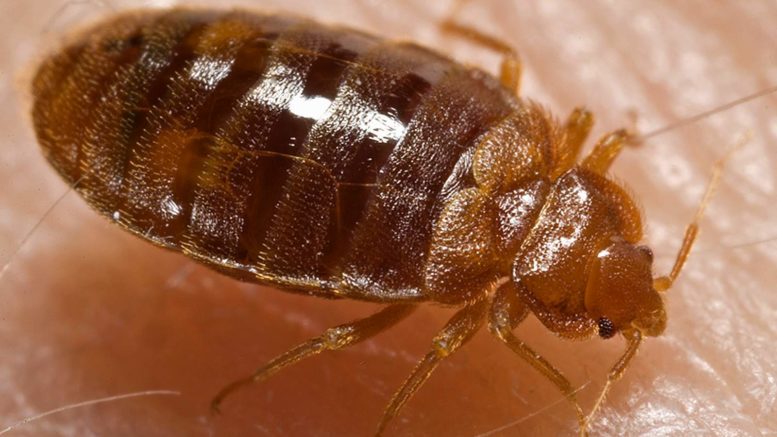Mention bed bugs and it feels like a step into the past; Families living in over-crowded accommodation, children crowded into one, possibly urine stained and smelling, bed. No washing machines then to enable bedding to be washed and changed regularly. Furniture brought into the home from anyone who was throwing it out.
Some children went to school unbathed (the tin bath in the living room a weekly ritual, shared by all), scratching heads because of lice, bodies because of the rashes caused by bed bugs feasting on their human hosts.
Today, most families have baths and showers so children can go to school with a semblance of cleanliness. This, however, does not guard against either head lice or bed bugs.
Head lice are quickly spread around the school classroom but fortunately, easily eradicated with the help of various preparations available from the local chemist. No longer a dirty secret, preparations are even advertised on television. A happy ending then follows a few days of itching, though obviously, the bedding needs changing to ensure that no nits (the eggs of the louse) have been left on the pillow to hatch and start the process again.
Unfortunately, bed bugs are quite another matter and reports seem to be increasing because of the very warm weather we have had. They are tiny, so someone may have been bitten and suffering the itching and the rash for several days, before either a bug is seen or someone recognises the signs and knows what to look for.
There are no short-cuts, quick and cheap things that a tenant or landlord might do if a bed bug infestation is recognised: rarely will a self-treatment be successful, and eggs can be laid or fall onto carpets and remain dormant. You might think you have eradicated the problem; they may enjoy a long sleep and then awake, bouncing around when the weather gets warmer. Take the advice, and probably the services of, a professional, used to dealing with these kinds of pests.
Bed bugs are unpleasant but do not indicate that a property is dirty; the bedrooms may be kept pristine, but if bed bugs get in, they will start to make nests in which to lay their eggs. If dust is left to accumulate and there are items on the floor which make thorough vacuuming impossible, it can make it a very welcoming environment for pests – family accommodation available.
Guarding against bed bugs is difficult, if you let furnished properties. Inspect mattresses closely between tenancies. Ask your tenants if there have been any problems (without being too graphic – complaints need to be authentic, not because a possible problem may have been suggested!). Perhaps, as a private landlord, you should ask advice of a pest controller; is there any way of being sure that there are, or are not, bed bugs.
In my opening paragraph, I refer to by-gone days, when people re-possessed anything they were offered in the way of beds and furniture. Sadly, nowadays, so many private sector landlords have found furniture stolen or ruined that they no longer provide furniture. Tenants will then need to provide their own. This will sometimes mean that beds come into the property infested.
The tenant cannot be blamed for this, though it is their responsibility. Follow the advice of the pest controller and ensure that it is written into the tenancy agreement that pests brought into the house by the tenant must be eradicated at the tenant’s cost.
I have seen tenancy agreements that have said all such nuisances are down to the tenant. Depending on the circumstances, this could be an unfair contract term; rats are unlikely to follow a tenant, though the way the tenant lives may make it very appealing for rats and mice.
Be fair to the tenant. Make sure there is no evidence of vermin before the tenancy starts and where you become aware of rats, mice or bed bugs, ACT – for the sake of the tenant, for the sake of your professional reputation.
For advice on buy to let issues – General Knowledge









Be the first to comment on "Don’t Let Bed Bugs Bite Your Buy to Let Profits"